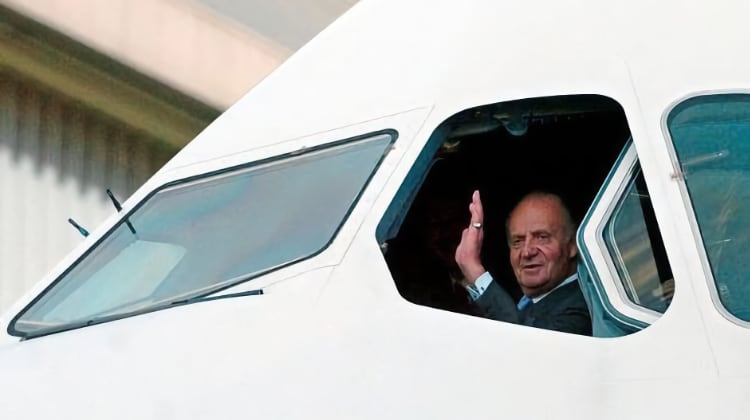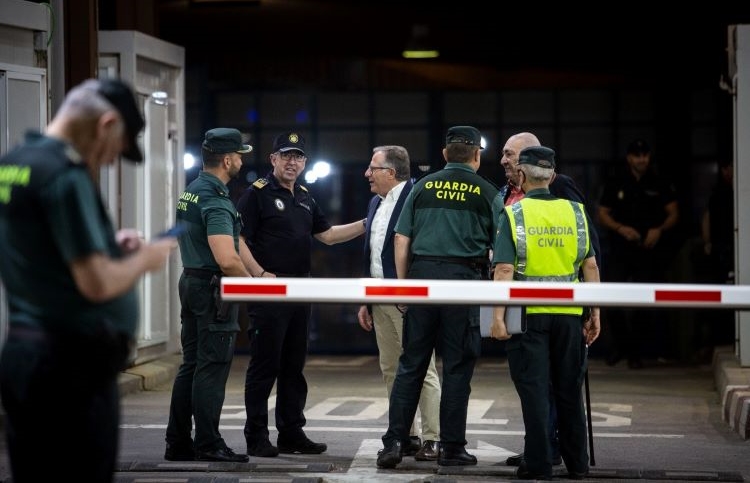The Diplomat
Juan Carlos I’s diplomatic trips contributed to Spain’s economy more than 62 billion euros and the equivalent in the creation of more than 2.4 million jobs between 1978 and 2014, according to data collected by the portal A Royal Legacy.
The portal, launched by the Spanish Royal Concord Association and presented on Tuesday, aims to highlight the impact that the 224 trips made by the monarch have had on Spain’s international projection, reports Europa Press.
It is an analysis of 30 million public documents that have undergone up to three validation processes with consultations with various sources of information, such as the media, public sources and personalities who accompanied the king emeritus. The initiative is part of the campaign ‘Do you remember when nobody gave a penny for us’, which seeks to highlight the work of Juan Carlos I.
The study has been carried out by dividing his reign into three periods, from 1978 to 1989, from 1990 to 1999 and from 2000 to 2014. The first stage contains the diplomatic trips in which the aim was to showcase and promote the values embodied by Spanish democracy and his role as a guarantor of the confidence that the new horizons towards which the country was heading deserved. The second and third were, respectively, those of economic opening and consolidation.
Former Defence Minister Eduardo Serra, who attended the presentation, stressed that, in 1978, Spain was a “closed” country, both politically and economically, whereas today it is an “open” nation in both respects. In his opinion, “the economic miracle” of Spain “has a protagonist”, Juan Carlos I, something that must be recognised, as we must not fall into “ingratitude and injustice”.
In the same vein, the former State Secretary and High Commissioner for Marca España, Carlos Espinosa de los Monteros, said that the King Emeritus “was Spain’s best ambassador abroad” when it came to Marca España.
According to Espinosa de los Monteros, “Spain was a country that was liked”, with a “friendly, fun and attractive” image. “We were received in a way that other countries are not received, and in this favourable image-building, the king was a key player,” he added.
In this sense, he also highlighted the “qualitative, not quantitative” consequences of the King’s trips. “How much is it worth to have entered the European Union, to have been accepted in China, where we were unknown, or all the work in Latin America?
Espinosa de los Monteros indicated that the most important country in economic terms, according to the tool, is Saudi Arabia, followed by the rest of the Gulf countries. The United Kingdom, France, Mexico, Venezuela and the United States also stand out, although the most frequent destinations were the United States and France, with 15 trips to each of them.
The figures shown by the portal, which is based on semantic artificial intelligence to collect, process and interpret the impact of the trips, have been triple-checked. In total, 76 have been validated, but there are another 32 that have been rejected as doubtful because they did not pass the triple check. Taking them into account, the economic benefit for Spain amounts to more than 125.6 billion euros.
“In any case, the contribution made by Don Juan Carlos over these 40 years cannot be limited to these figures alone, which constitute the tip of the iceberg of a much larger work whose research, explanation and dissemination we are already working on”, explained the project coordinator, Fernando Ruiz.
The presentation of the campaign, which began on Saturday with the display in Calle Alcalá, next to the Ministry of Equality, of a banner vindicating the figure of Juan Carlos I, has coincided with the call between the King Emeritus and King Felipe VI and when the information suggests that the former will visit Spain soon.
Both Serra and Espinosa de los Monteros denied having been aware of this circumstance and stressed that the presentation of the portal was a “coincidence”. However, the former Secretary of State did confirm that he had told Juan Carlos I that the project would be presented that day, although he did not give him “details or figures”.
In reference to the return of the King Emeritus to Spain, Serra regretted that “we are being unjust, ungrateful and naïve” and remarked that in a democracy there is a “presumption of innocence”. “We have been very careful about saying presumed ETA or presumed terrorist, but not here,” he lamented. “When one believes that one’s head of state has done something, dirty laundry is washed at home and not hung up,” he added.
Espinosa de los Monteros, in the same vein, described it as “unfair” that the presence of the King Emeritus is denied “in what is his home”.







